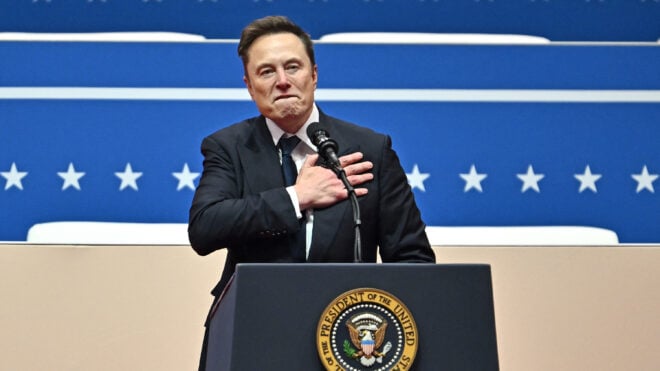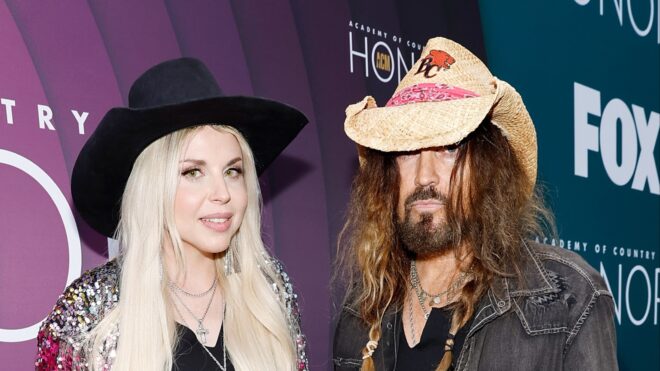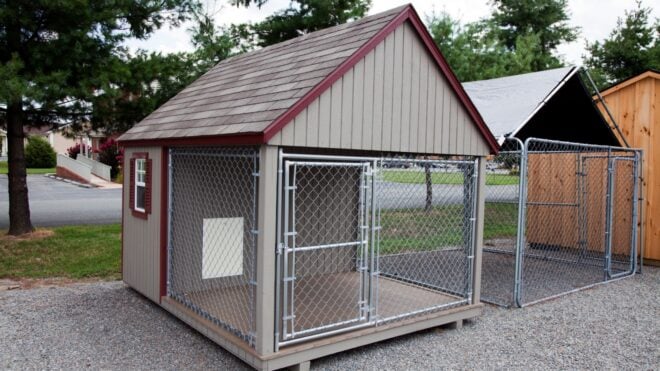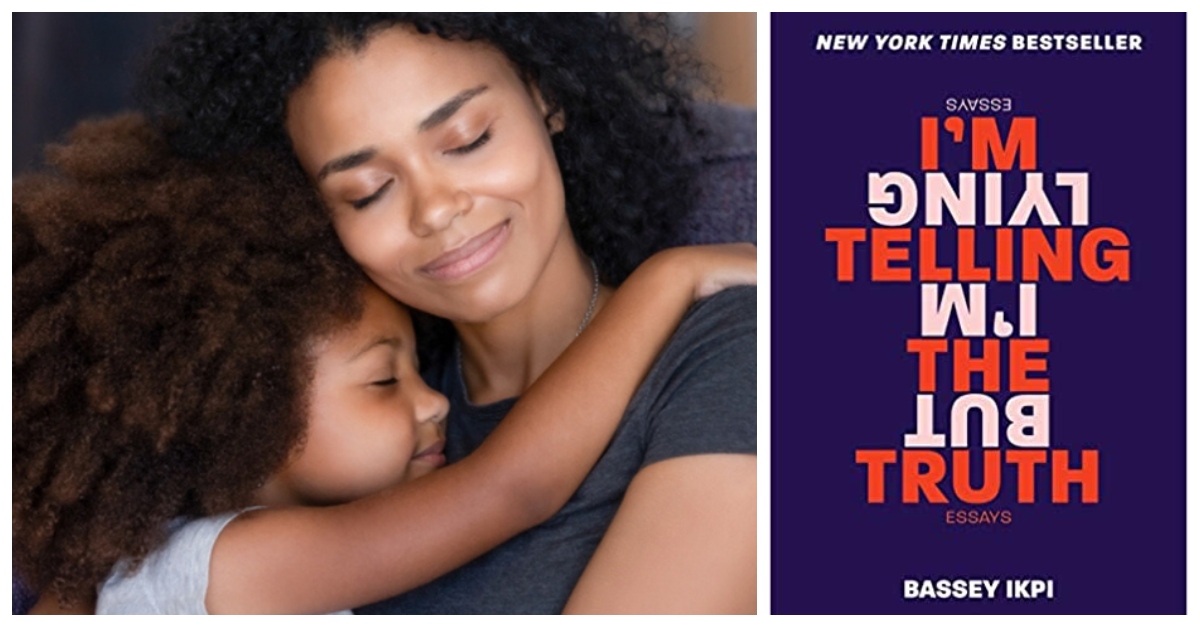
Society is in the midst of an important conversation. The death of George Floyd put all eyes on Minneapolis and sent shockwaves throughout the world. Now more than ever, we have been confronted with the ugly truths about our country. Many Americans are awakening to the injustice in our country that Black Americans have never had the option of ignoring.
Black parents are carrying a heavy load right now. They are processing the trauma of systemic racism in real time as everyone discusses what they already knew. They relive that trauma with every name that becomes a hashtag, and all the ones that don't. Then they have to look at their Black children and figure out a course of action. Is it time for the talk? What have they seen? What do they fear? The rewarding aspects of nurturing children can quickly turn challenging, especially when trauma is involved. Make no mistake — racism in even its most micro-aggressive forms is trauma.
Mental health is a subject historically ignored in the Black community. Thankfully, that conversation has opened in recent years, creating change. As Black parents cope with emotionally exhausting and heavy work, it's important to take time for their mental health. You're pouring a lot into your children right now. Make sure you're not pouring from an empty cup by checking out these resources.
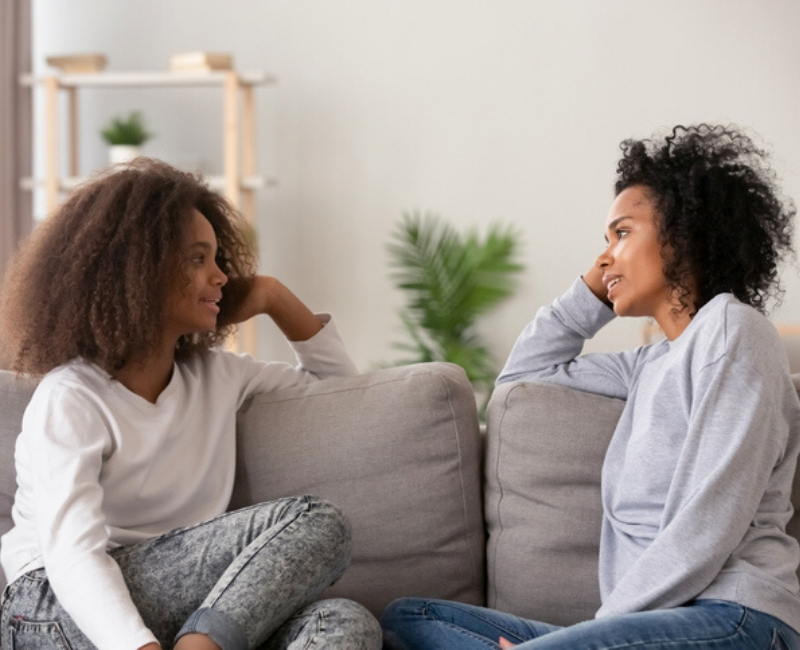
It's more important than ever for Black parents to take care of their mental health right now. The Black community is the middle of a pivotal moment that will be telling about our society as a whole. Black people are doing an unthinkable amount of emotional work while continuing to heal from generations of racial trauma.
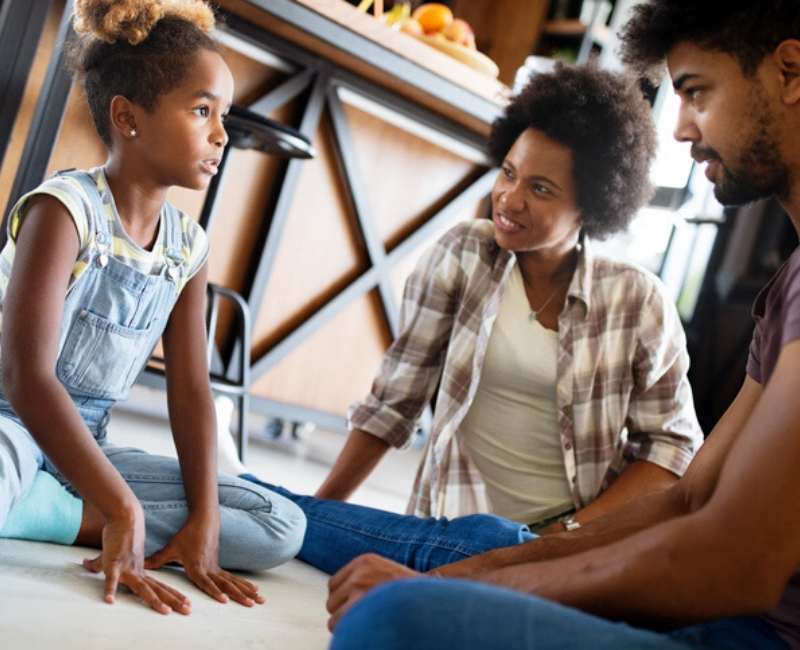
For parents, the challenge is to be able to keep themselves in a place where they can serve their children's emotional needs as well as their own. This is additionally challenging because the mental health and wellness space is a predominately white one. There have been many advancements in mental health care among people of color in recent years. As that shift has occurred, tremendously valuable resources have emerged that make some of this work a little bit easier.
Finding Black Therapists
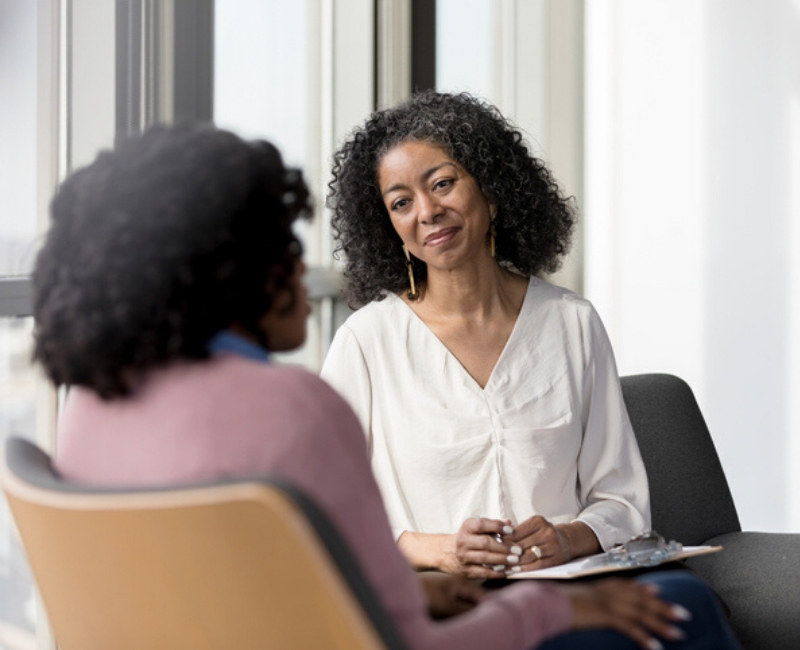
Historically, Black people who have sought out therapy have found themselves misdiagnosed by white doctors. The following services can connect you to therapists who understand the intricacies of racial trauma.
- Inclusive Therapists is a database that features therapists trained in racial trauma and aims to connect people of all identities and abilities to culturally sensitive care.
- National Queer and Trans Therapists of Color Network is committed to healing justice through social justice and mental health work with queer and trans people of color (QTPOC).
- Melanin and Mental Health connects members of Black and Latinx/Hispanic communities to culturally competent clinicians who can meet their needs.
- The Loveland Therapy Fund by the Loveland Foundation provides financial assistance for Black women and girls around the country.
- The Boris Lawrence Henson Foundation offers a directory of mental health providers and programs servicing the Black community.
- Therapy for Black Men connects Black men with therapists and publishes a blog that features the experiences of Black men in their mental health journeys.
- Black Female Therapists connects users with a directory of providers around the country.
- Black Women’s Health Imperative aims to achieve health equity for all Black women.
Black Mental Health Organizations and Services
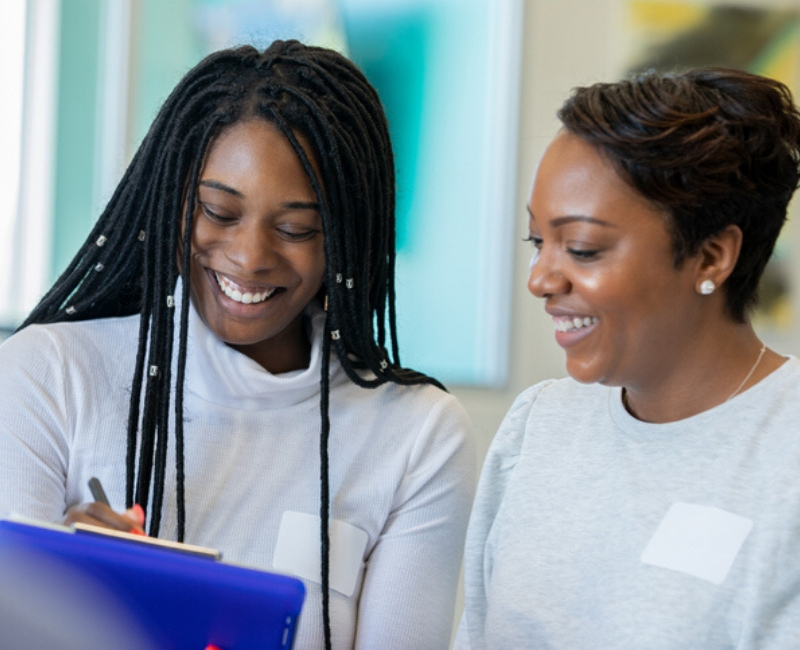
From apps to community-based treatment, there are many people working to make mental health tools and services accessible for Black people. For Black parents, many of these virtual services and spaces can be a welcome respite.
- The Safe Place is an app that provides the Black community with mental health awareness and education through various tools.
- Sista Afya offers a community-based approach to mental health that encourages women across the African diaspora to connect with one another and important resources as part of regular wellness practices.
- Transparent Black Girl is a wellness company shattering unconventional stigmas surrounding what it means to be well for Black women.
- Dive in Well looks to bring Black people into the wellness conversation through digital classes on wellness practices.
- Ethel’s Club offers the first social and wellness platform designed to celebrate people of color. It’s a digital wellness and social space hoping to help individuals thrive.
- Naaya is an online space aiming to put BIPOC (Black, indigenous, and people of color) people at the center of the wellness conversation.
- Black Emotional and Mental Health Collective offers tools and resources for self-work and building healthy relationships.
- HealHaus typically provides classes and workshops at its Brooklyn location but has a lot of online resources amid the shutdowns.
- Emotional Emancipation Circles seek to heal the trauma of anti-Black racism with self-help support groups across the country.
- Counseling@Northwestern helps arm media consumers with strategies to address re-traumatization that occurs from racial trauma in film and other media.
Things To Read

Between self-publishing and blogs, it is easier than ever for those working in the mental health and wellness spaces to reach Black people. These materials can be illuminating and affirming in a way so many need right now.
- POC Online Classroom has a list of crucial self-care readings.
- Soothe Your Nerves: The Black Woman’s Guide To Understanding and Overcoming Anxiety, Panic, and Fear by Dr. Angela Neal-Barnett
- Association of Black Psychologists Self-Care Tool Kit helps educate on matters of racial trauma and healing while providing self-care strategies.
- Invisible Man, Got the Whole World Watching: A Young Black Man’s Education by Mychal Denzel Smith
- The Unapologetic Guide to Black Mental Health: Navigate an Unequal System, Learn Tools for Emotional Wellness, and Get the Help You Deserve by Rheeda Walker, PhD
- I’m Telling the Truth, but I’m Lying: Essays by Bassey Ikpi
- Black Pain: It Just Looks Like We’re Not Hurting by Terrie M. Williams
- My Grandmother’s Hands: Racialized Trauma and the Pathway To Mending Our Hearts and Bodies by Resmaa Menakem MSW, LICSW, SEP
Podcasts To Listen To
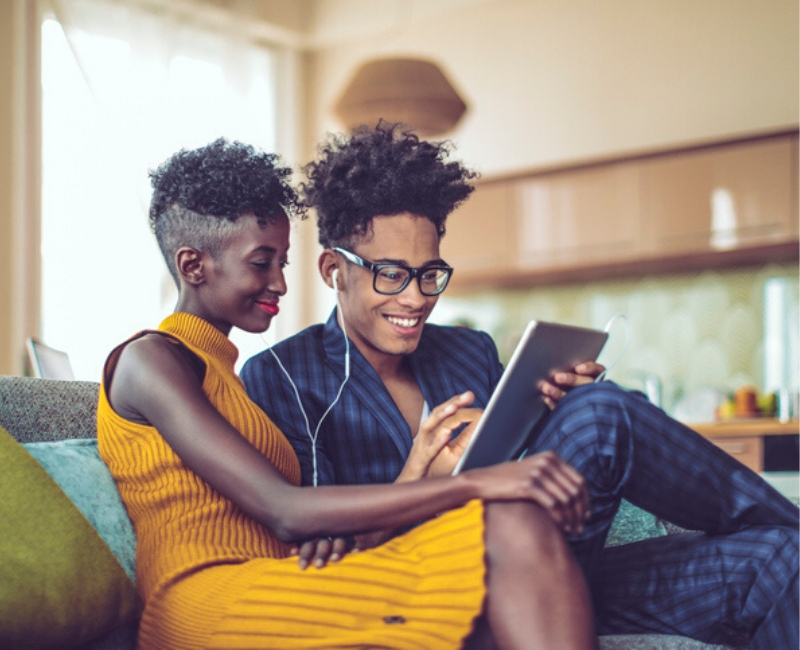
Podcasting is an incredible way to gain access to some voices you may not get to hear otherwise. These podcasts can be soothing and open your eyes to new perspectives with understanding.
Accounts That Add Positivity to Your Feed
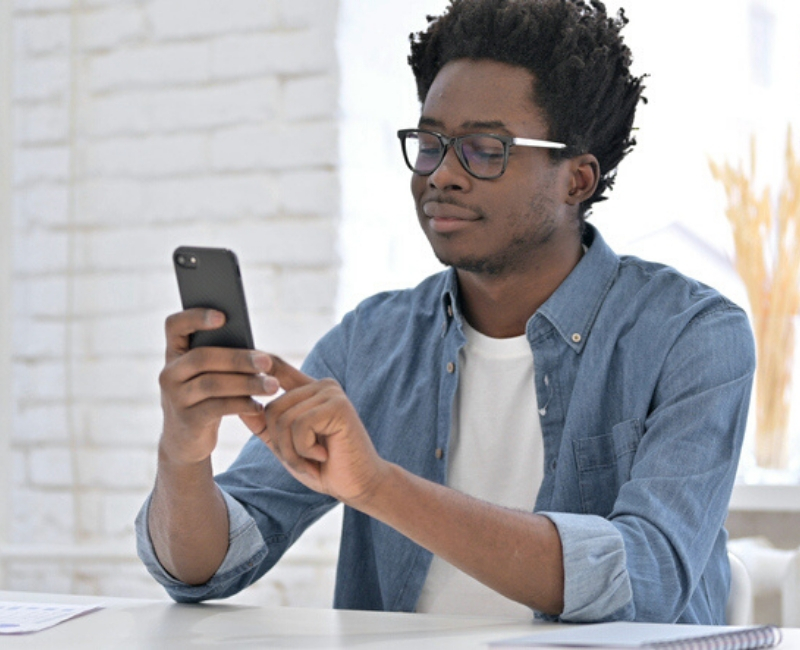
- Healing While Black is an account that focuses on Black queer mental health.
- The Nap Ministry champions Black sleep health in resistance to burnout culture and capitalistic demands.
- Black Mental Health Alliance is a community-based membership organization that looks to optimize Black mental health and well-being.
- Black Girls In Om describes its vision as “a world where womxn of color are liberated, empowered & seen.”
- Saddie Baddies is a virtual community for women of color to destigmatize mental health.
- Rest for Resistance provides emotional support resources for QTPOC.
- So She Slays offers inspirational content for women of color.
- Brown Girl Self-Care is a safe space for Black women to explore different methods of self-care.
- Black Men With Gardens brings you black men celebrating Mother Earth.
Thought Leaders
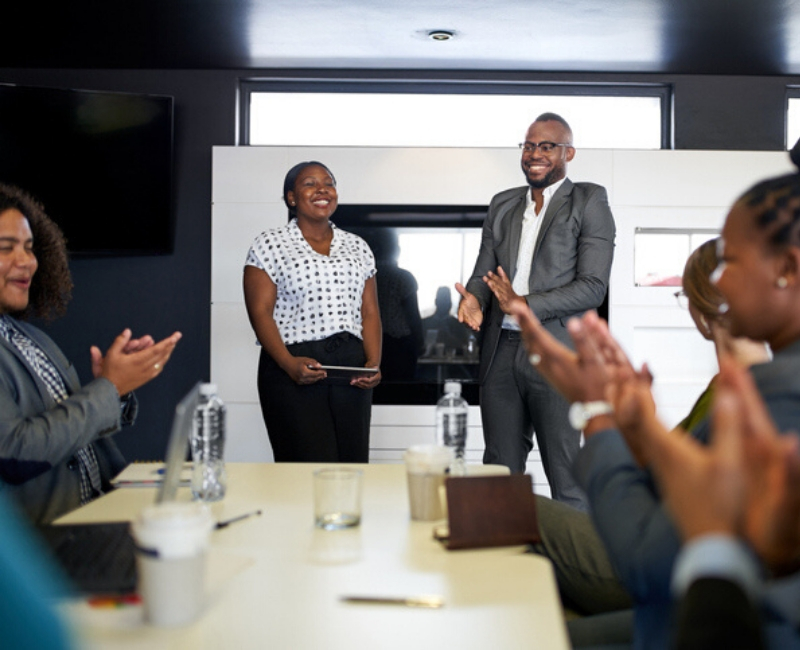
Highlighting important Black voices who are looking to lead and guide, these thought leaders are envisioning change and putting it into action.
- Light Watkins is an author and Vedic meditation teacher sharing the pleasure of positivity through his books, talks, and teachings.
- Myisha T. Hill is the founder of Brown Sisters Speak and the Check Your Privilege program.
- EbonyJanice is an author and activist who does community-organizing work focused on Black women’s body ownership as a justice issue.
- Rachel Cargle is a writer, lecturer, and academic whose work focuses on the intersection of race and womanhood.
- Valeisha Butterfield Jones is the global head of women and Black community engagement for Google and the cofounder and CEO of the Women in Entertainment Empowerment Network.
- Ijeoma Oluo is the author of So You Want To Talk About Race.
- Dr. Yusef Salaam is one of the Exonerated Five and a speaker discussing injustice in disenfranchised communities.
Get Moving

Exercise is hard to get to, but it feels great when you do. Getting your body in motion can do wonders for your mental health.
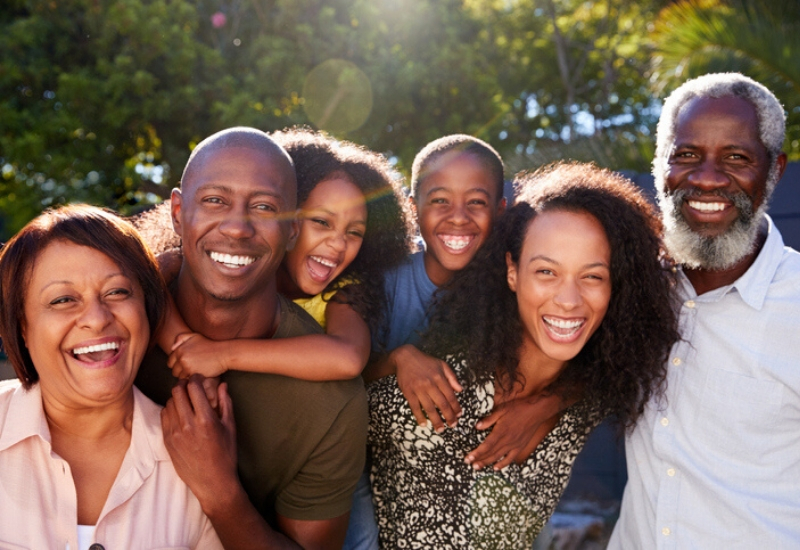
Change, sadly, does not work on a timeline. There's no telling how long conversations will go on before action is taken. The world is changing every day. It's important to take care of yourselves as you learn and grow. Doing so will also plant the seeds of self-care in your children. Regardless of what happens next, those are skills they'll always need.

